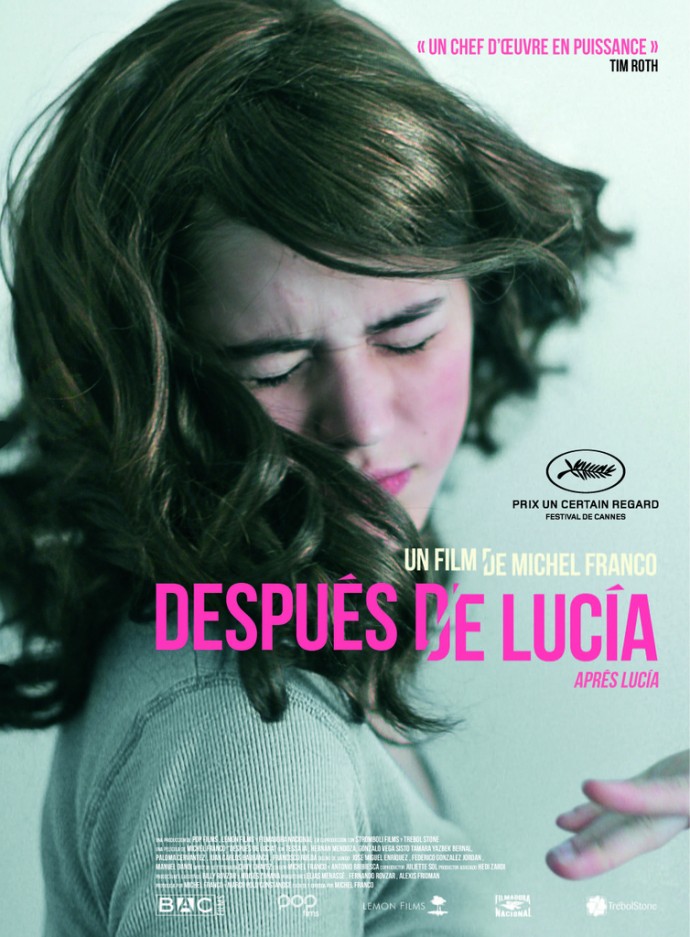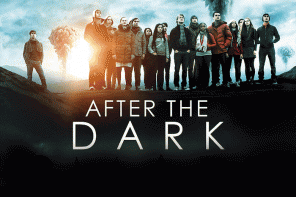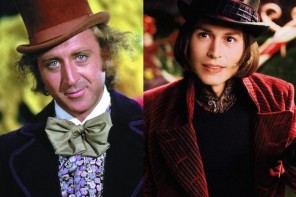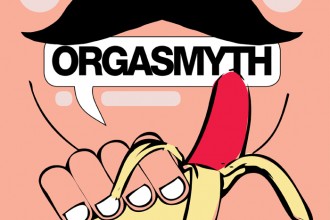An independent Mexican film depicting the repercussions of a high school one-night stand inspired Nico Montana to reflect on the meaning of machismo, manhood and the high price that male sexual identity exacts of both men and women.
Después De Lucia (2012), directed and written by Michael Franco, tells the story of Ale and her father, Roberto, and their move to Mexico City. There, Ale deals with the typical angst of being the new girl at school, while Jose works as a chef at a new restaurant. But the narrative transcends their respective journeys and acts as a critique of a system in which we all exist – machismo, and patriarchy. With an overwhelmingly powerful performance by Tessa Ia, the film delves into the human aspects of the way that sex, adolescence, abuse, and internalized machismo affect all of us, not only girls.
The movie takes place against the backdrop of middle/upper class Mexico City. Ale, after befriending a small group at her new school, is invited to go away with them for a weekend of fun. As the night progresses, with bottles of liquor and a joint being passed along, Ale and one of the boys, Jose, have sex. He records it on his mobile. An unsurprising catalyst to the plot itself, the video is distributed by the usual modern means to everyone at Ale’s new school. Hence Franco eloquently and unapologetically delves into a social critique of how it is we treat our girls as a society, and how destructive our unconsciously imposed socialization is on boys and men.
The tone of the film never alludes to the dark colors of stereotypical cinematography when it comes to depression and trauma, but maintains an illusionary “safe” aesthetic of the “well-off” in society. Insidious machismo is shrouded in photogenic smiles and high-end adolescent fashion. It is hard to pin point where machismo exists in this world, yet Franco brilliantly weaves the paradigm into every shot. On a daily basis and, perhaps, during every moment, Ale is forced to contend with the repercussions of her actions and, moreover, the attitudes of her peers.
Franco does this through several themes in the film, one of them being isolation. Ale is isolated and lacks allies, particularly in the form of other female students, as they choose to not only distance themselves from what happened to her, but also use it to reinforce her new place on the social hierarchy. In one scene, they invite her over to try on dresses for a party, but only as a ploy to cut her hair and express their disgust toward her. Yet the question is not whether act itself was malicious – it was. The question is why they did it. Is isolating Ale a way to preserve their own place in the social hierarchy, by avoiding friendship with a supposed “slut/whore”? Is it a way to remain safe from uninvited, brutally-aggressive sexual advances?
Another theme is the internalized justification for rape and sexual abuse. While the initial sexual encounter of Ale and Jose was consensual (though this is arguable, given their age), all sexual advances Ale that receives after that are uninvited, aggressive, and dehumanizing. Two of the boys that she befriended early on chase her into the bathroom and touch her, imply that she wants them and push themselves on her while calling her “slut”, as Ale pleads with them to stop.
Franco does not tell the whole story, and allows audiences to interpret what happened, is happening, and will happen. The film leaves the destinies of several characters a mystery, including Ale and her father.
There is one instance that Franco makes the most profound critique of machismo. During a school trip away at the shore, one of the boys, Javier, enters the bathroom where Ale is sleeping during a party and begins to grope her forcefully. The rest of the scene takes place off-screen, and Franco does not explicitly (or even implicitly) reveal what the Javier did. We know Ale resisted, but did she succeed in fending him off? While that may never actually be known from solely watching the film, what happens afterward is disturbing. Javier exits the bathroom and brags to his friend that he has just had sex with Ale. Regardless of the fact that the sex would have been rape, and aside from having sexually assaulted her, the fact that he thinks what he has done still falls within a consensual realm is alarming. Yet what is truly questionable is the underlying social law that enables Javier to believe that rape is okay, and that bragging about it will solidify his position within the male dominant social hierarchy with his male friends. This scene also speaks to the pressure we place on boys to believe that part of being a man is having sex, and that sex is justified regardless of how it happens, even if it is through rape.
Machismo, as intrusive as it is, does not only claw at the soul of Ale as a young girl, but also the girls around her and the boys and men who at first seem protected from its insidious influence. Not only are questions of rape and abuse brought up, but other questions as well. Are boys only ‘being boys’? When does school bullying end and full on physical and psychological torture begin? What is consent? And, who is to blame for all of this? Is it men, women, girls, boys, or a larger system which we individually cannot control but collectively perpetuate?
While other themes are also explored – the way in which sexual violence is treated by the criminal justice system; existential questions of justice and revenge – the film acts as a powerful testament to the need to face up to machismo. It is not a problem experienced solely by girls and women, but by everyone. From the teenage boys ‘being boys’, to the men who father these boys, and so on. Machismo is not a woman’s problem, it is everyone’s problem, and there is no place, not even in the echelons of the middle and upper class, that it does not viciously invade and cause upheaval in order to keep itself alive.







